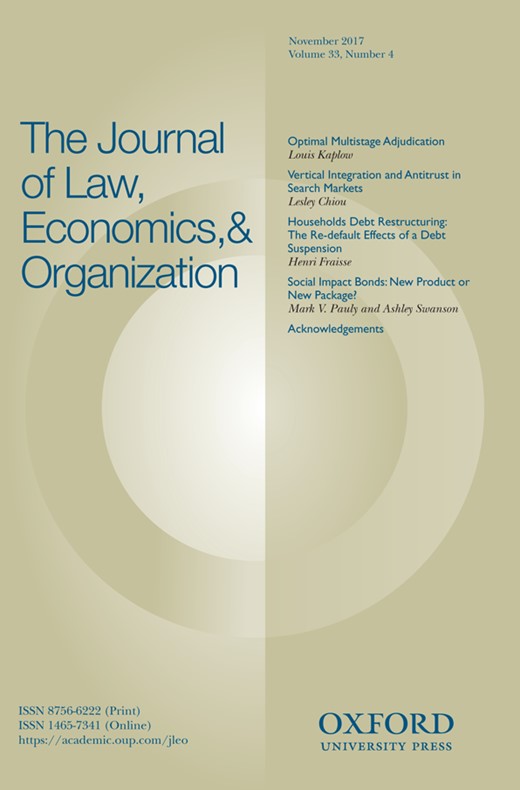-
Views
-
Cite
Cite
Mark V. Pauly, Ashley Swanson, Social Impact Bonds: New Product or New Package?, The Journal of Law, Economics, and Organization, Volume 33, Issue 4, November 2017, Pages 718–760, https://doi.org/10.1093/jleo/ewx012
Close - Share Icon Share
Abstract
This paper considers a relatively new form of financing for social services, the “social impact bond (SIB).” Proponents of SIBs argue that they present a solution to several problems in funding social services, including performance incentives and risk allocation. Using a simple model, we first demonstrate that, despite their apparent novelty, SIBs in concept need not produce any difference in outcome from standard financing arrangements with private nonprofit firms. We then argue that SIBs will lead to greater program success if investors’ effort responds to incentives and can positively influence outcomes, either directly (e.g., effort exerted in production) or indirectly (e.g., effort devoted to screening), but are unlikely to do so otherwise. We conclude that, as in the more general theoretical literature, the value of this particular application in terms of funding innovation will be strongly context-dependent. (JEL H4, H53, L3, M14, O35)



